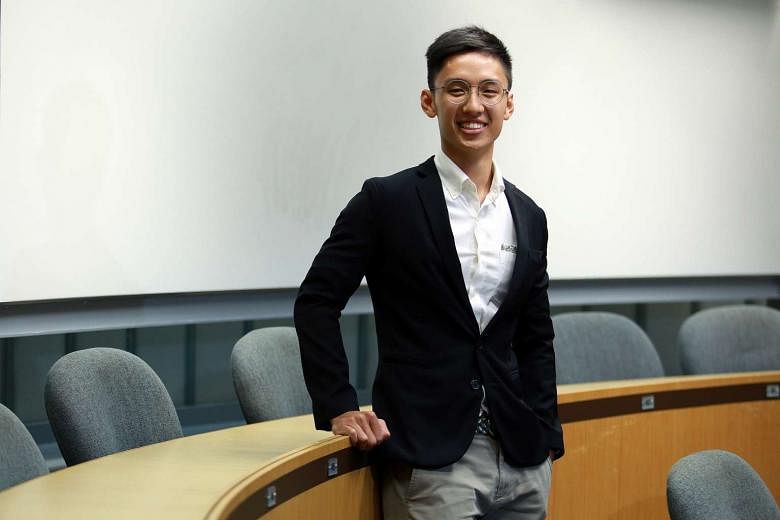Youth is wasted on the young, Nobel Prize-winning playwright George Bernard Shaw once said.
His witticism reminds young people that time is an asset that they should value highly. Experts advocate that you should start investing as soon and as early as possible.
SingCapital chief executive Alfred Chia says with time, you can have the benefits of compound interest. He cites the example of a goal of accumulating $50,000 by the age of 40, based on an investment return of 4 per cent.
If you start investing at 30, your monthly investment sum required is about $338. At 25 years old, that drops to about $203, and at 20, it's only about $136. Just by starting 10 years ahead, the sum required for investment is less than half that at 30, leaving inflation aside.
Mr Marc Lansonneur, DBS Bank's head of investment products in Singapore, explains: "Compound interest is interest revenue derived not just from the initial deposit, but also from the accumulated interest from the previous periods of the deposit, earning 'interest on interest'.
-
A mini-guide to investing for young people
-
•When you turn 18, open an individual Central Depository (CDP) securities account and a stockbroking account. You can link a few broking accounts to your CDP account.
•The broking account will allow you to trade shares. The CDP account is for trade settlement and it maintains your securities on SGX.
•HSBC's Mr Colebrook says high fees and charges would erode the returns from the investment. So why not consider online stock trading platforms? "It could be a good option as it is a relatively low-cost channel."
•Understand your own risk profile and set the level of risk you are ready to accept for your investments, says DBS' Mr Lansonneur.
•Check out investment initiatives that let you invest in blue-chip stocks or ETFs for as little as $100 a month, at banks like DBS or OCBC.
•Spend time to educate yourself about investing and the different instruments. "Investing in personal financial literacy will pay dividends for a lifetime," says TD Ameritrade Asia's Mr Brankin.
•Differentiate between needs and wants, says SingCapital's Mr Chia. "If you can't do that, any money made will eventually be lost."
•Look out for more seminars by MoneySense, the national financial literacy programme, at universities and polytechnics.
"If the investor does not require regular income or revenue disbursement from his investment, then compounding interest is a sound long-term investment strategy."
But common pitfalls that young people face include a lack of capital, using whatever capital they have inefficiently and dragging their feet on the matter, note experts.
Mr Vasu Menon, vice-president of OCBC Wealth Management Singapore, says many youth are hesitant. "The risk is that the cost of living may rise faster than the pace at which your idle funds grow, in which case, you will be disadvantaged and may find it hard to meet your aspirations and those of your family in future."
Mr Matthew Colebrook, HSBC Singapore's retail banking and wealth management head, says portfolios should be diversified.
"Investing all of one's money into the next hottest stock or initial public offering might be thrilling, but putting all eggs into one basket is not a wise investment strategy.
"Building a balanced portfolio of stocks over time is the more prudent approach to investing. Again, for young investors just starting out, the exchange-traded fund may be a good option as it offers instant diversification to a basket of securities - stocks or bonds."
Mr Dennis Khoo, UOB's head of personal financial services, says you can start by setting aside just $100 a month for the next 20 years. Based on a dividend yield of up to 5 per cent, this could yield $40,580.
TD Ameritrade Asia chief executive Christopher Brankin notes that young or new investors forget to consider risk while looking at the profit potential of investments. He says risk-defined strategies are effective ways of utilising capital and give a clear understanding of risk-to-reward trade-offs. He reminds new investors: "It is imperative to understand that there may be a need to rebalance one's portfolio based on market conditions."
On Page 22, The Sunday Times speaks to two young investors who have overcome the initial hiccups of investing and are building their portfolios.


